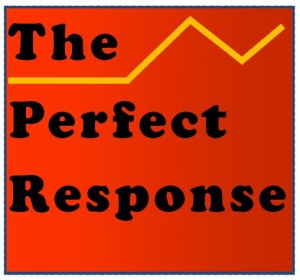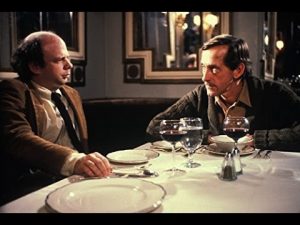Some of us are waterfalls of language. But we can be too sure that our verbosity will solidify our relations with others.
I had a friend who had an aversion to people who constantly filled a room with talk. It was probably the eastern mystic in Paul, who was constantly chagrined by people who had dedicated themselves to replacing whatever silence they encountered with their own observations. I never asked him why he recoiled from these conversational marathoners. But I think I knew. He favored words chosen carefully. He liked a comment that had a point, but not ten points. Most of all, he recoiled against Very Verbal People who turned their opinions into a circus of logorrhea. Speaking before fully processing what you wanted to communicate wasn’t his style. Not surprisingly, his care with words and comfort with silence made him a wonderful listener and a good colleague.
Even so, there are times when we do love verbal people who light up a space with their wit and responsiveness. For most of us that room is usually a theater. It helps when we can witness a conversation that has been worked out and honed by a room full of crack writers. It helps as well to have actors who can deliver the perfect response with a naturalness that lets us forget that their words came from a script.
The performer as a Very Verbal Person is something of a showcase for the possibilities of language, a model that we may admire for putting a difficult person in their place or, better yet, restoring the will of someone damaged by the worst that life can give. A good script perfects what is never quite so clear in real life.

My favorite cases include the Schlegel sisters in James Ivory’s 1992 film, Howard’s End. E. M. Forster’s two young women are confined by the conventions of the day to stay close to their modest home in turn of the century London. But they are full of ideas and thirsty for conversation, even if the potential conversant is simply a clerk who shows up at their front door to retrieve a misappropriated umbrella. Their curiosity makes them seem fully alive.
There is also the pleasure of hearing the complex overlapping dialogue of Richard Linklater’s Before Trilogy, Before Sunrise (1995), Before Sunset (2004) and Before Midnight (2013). Co-written by he actors Ethan Hawke and Julie Delpy, the series’s two free spirits migrate through first love to eventually face the challenges of marriage and a family. It’s all done with restless characters who have made their interiority transparent. Its the same satisfaction a viewer gets from vastly different television classics like WB’s Gilmore Girls (2000) or The West Wing (1999). Writer Aaron Sorkin’s breakthrough series about the Bartlett administration is defined by Sorkin’s love of dialogue structured as a series of intense interrogatories and responses. No voiceless and moody reaction shots here. In Sorkinworld characters are always duty bound to frame their feelings as complete arguments and counter-arguments.
The surprise in the otherwise more conventional Gilmore Girls lies partly in the fact that the actors were running through scripts that were often twice the number of pages as similar hour-long shows. Indeed, the long-running series now in re-runs owes its best scenes to the rhythm and pacing common in 1930’s film farces. Who knew that there is a bit of Groucho Marx in Lauren Graham?
In these and other entertainments the fun is in watching Very Verbal People trade rebukes and put-downs using a logic entirely their own. The point obviously was not the real-world relevance of the logic, which only makes sense within the manufactured world of the narrative, but the pleasure of seeing people completely comfortable with the task of explaining everything.
All of this boils down to our love of the idea of total fluency. We spend a lot of our waking hours trying to imagine the right thing. . .anything. . .that will resolve the challenges of dealing with prickly others. Its only natural to admire those who make it look so easy.
![]()

